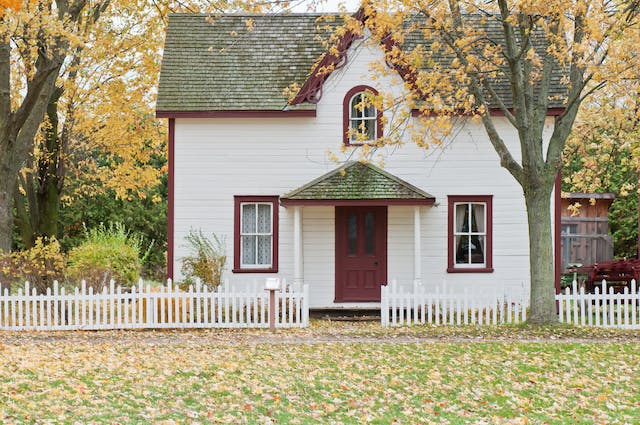When it comes to owning a historic home, the charm and character are undeniable. These homes carry the past into the present, offering a unique living experience that modern houses can’t match. However, insuring these properties can bring its own set of challenges. The ‘Historic Homes: Special Considerations for Insurance’ article will clear up this process by providing a comprehensive guide on how to insure your historic home properly. Just like these homes themselves, their insurance requires a special perspective.
This article will cover why insuring a historic home differs to insuring a newer property, what special considerations should be made, and how to find the right match for your historic property insurance needs. With these insights, you’ll be better prepared to protect your slice of history.
Key Points
- The distinctive and antique features of historic homes can increase the value of the property. These unique attributes are often costly to repair or replace, which makes them a crucial factor in determining the insurance coverage.
- Historic Home Insurance covers costs for specialized craftsmen and rare materials needed to restore the property to its original state in the event of a damage.
- It’s often beneficial for homeowners to contract insurance companies that specialize in historic properties as they typically have a deeper understanding of unique needs and values of these homes.
- Setting the right insurance value is immensely important for historic homes. It’s advisable to get your home independently appraised to set an accurate coverage amount.
- Regular insurance policies might not provide sufficient coverage for a historic home. Hence, it’s imperative to thoroughly consider all potential risks and repair costs before determining the level of insurance coverage.
- Some Historic Homes insurance policies may also cover liability, providing the homeowner with protection should someone get injured on the property.
Consequently, Historic Homes insurance is an essential tool for the preservation and maintenance of these timeless properties, offering peace of mind to homeowners. Always remember to research carefully, choose a knowledgeable insurer, and have an accurate appraisal to ensure your historical house gets the tailored protection it deserves.
Understanding Historic Home Insurance
Insurance for historic homes is unlike regular homeowner’s insurance due to the unique characteristics of these buildings. These homes often include historic materials, customized craftsmanship, and architectural details that greatly increase the value of the house but also the cost of insurance due to the increased replacement cost.
Factors Influencing Historic Home Insurance
- Age and Construction: Older structures can present various challenges such as outdated electrical and plumbing systems. They may be built with materials that are expensive or challenging to replace.
- Replacement Cost: Historic homes typically have unique features that require specialized skills and materials to repair or replace. This factor alone makes the replacement cost of a historic home significantly higher.
- Regulation Compliance: Often, historic homes are subject to preservation rules and regulations that can limit changes and require certain materials or techniques be used when repairs or renovations are made.
Different Types of Insurance for Historic Homes
- Historic Home Insurance: This is a specialized policy for homes generally over 100 years old, with historic significance or architectural embellishments.
- Old Home Insurance: Policies designed for homes that are old, but do not necessarily have the architectural significance or historic designations. They can include those Victorian homes or older craftsman-styled homes which are tricky to insure due to their age and potential risk factors.
- High-Value Home Insurance: A solution that can be leveraged if a historic home appraisal comes in significantly higher than standard market value due to its unique features.
Must-have Insurance Coverages for Historic Homes
- Agreed Value Policy: This coverage ensures that the home’s complete value is covered, even if that value exceeds the cost of a typical property.
- Ordinance and Law Coverage: Covers additional costs of bringing the home up to current codes after a covered loss. It can be crucial as local ordinances for historic homes can regularly change.
- Replacement Cost Coverage: This coverage insures the property for the amount that it would cost to replace the home’s structure with materials and workmanship of similar quality, without depreciation reduction.
Reducing Historical Home Insurance Costs
Ensuring that the home is well-maintained and up-to-date with modern safety standards can reduce insurance costs. Also, bundling policies for all property types and maintaining a high credit score can also decrease the premiums.
Conclusion
Protecting historic homes means dealing with unique challenges and requirements. These homes have a charm and character that is rare, but it can be expensive to maintain and repair. This is where historic homes insurance comes in, offering a layer of financial protection for your cherished property.

